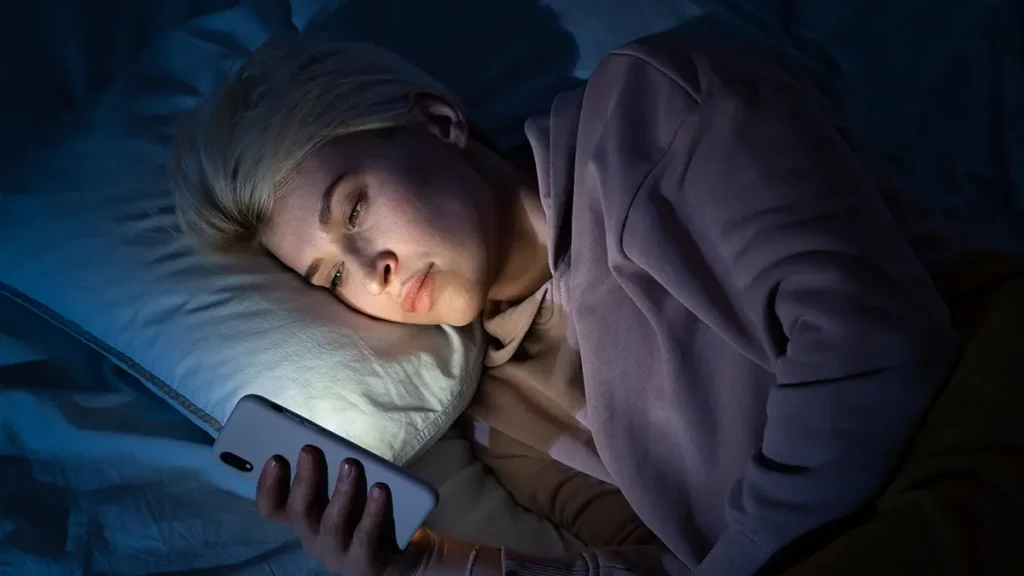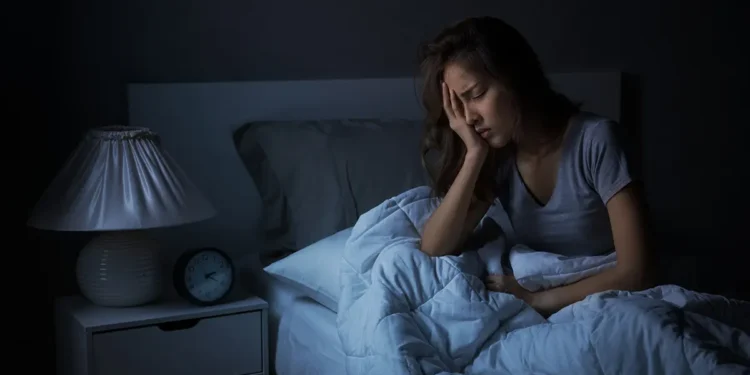Struggling with chronic insomnia and sleep issues ruining your life? You may be facing a serious sleep disorder. Try these effective methods to help you fall asleep and stay asleep.
Insomnia affects millions globally but varies significantly based on age, gender, and ethnicity, with symptoms of insomnia often differing across these groups. Whilst it is seemingly unfair that some suffer more than others, the disparity in insomnia symptoms does perhaps help us to tailor effective treatments and preventative measures.
Age
Young adults – particularly those in their 20s and 30s – may experience sleepless nights due to work pressures, academia, and social obligations, leading to a battle in maintaining a regular schedule or rest and replenishment.
Between 40 and 60 years, a combination of health issues, increased responsibilities and stress, as well as factors such as chronic pain, cardiovascular problems and anxiety, can significantly disrupt sleep.
Among the elderly, changes in sleep architecture – such as a decrease in deep sleep and an increase in night-time awakenings – can cause insomnia and come naturally with ageing. Arthritis, diabetes, and neurodegenerative disorders, along with the side effects of medication, can significantly impact sleep quality and contribute to chronic insomnia.
- GummyUP+
- Some potential benefits of using Griffonia seed extract include improved sleep quality, support for mood and relaxation.
- EASY TO USE, take 2 delicious berry flavoured gummies 30 minutes before bed. Each bottle contains 60 Gummies, 30 servings.
- Helps reduce stress and anxiety promoting good mental health and immune system.
- Relax the mind and sleep peacefully
Gender
Women are generally more prone to insomnia than men, with hormonal changes playing a significant role, particularly during menstrual cycles, pregnancy and menopause.
These physiological changes can lead to night sweats, hot flushes, and overall discomfort, disrupting sleep and potentially causing insomnia. Women are also more likely to experience anxiety and depression, both of which are closely linked to sleep disorders and can contribute to insomnia.
Men – although less frequently affected by insomnia compared to women – may still experience symptoms of insomnia and are not immune to sleep disorders. They may experience insomnia due to lifestyle factors such as high stress, irregular work schedules, and health issues like sleep apnoea, all of which can contribute to insomnia.

Ethnicity
Studies suggest that those of African and Hispanic descent report higher levels of sleep disturbances compared to other ethnic groups, often linked to socioeconomic factors, higher stress levels and less access to healthcare resources, as well as discrimination and social stressors.
Other ethnic groups also face unique challenges that can influence their sleep patterns, underscoring the importance of culturally sensitive approaches to treating insomnia.
If you are looking at ways to address insomnia, it’s recommended to make the doctor your first port of call.
Lifestyle Changes Cause Insomnia
Maintaining a regular sleep schedule, creating a restful sleeping environment, and avoiding caffeine and heavy meals before bedtime can significantly improve sleep quality and help you stay asleep. Try to get regular exercise, manage stress with meditation and limit screen-time before bed.
Therapies to Treat Insomnia
Cognitive-behavioural therapy for insomnia (CBT-I) is highly effective in treating insomnia disorders. It helps individuals identify and change thoughts and behaviours that contribute to insomnia and sleep problems. Techniques include sleep restriction, stimulus control, and relaxation training.
- GummyUP+
- Some potential benefits of using Griffonia seed extract include improved sleep quality, support for mood and relaxation.
- EASY TO USE, take 2 delicious berry flavoured gummies 30 minutes before bed. Each bottle contains 60 Gummies, 30 servings.
- Helps reduce stress and anxiety promoting good mental health and immune system.
- Relax the mind and sleep peacefully
Insomnia Treatments
In some cases, doctors may prescribe sleep medications, but they’re usually short-term solutions due to possible negative side effects and dependency risks. Melatonin supplements can also be helpful for people with insomnia to regulate sleep-wake cycles and help them fall asleep.
Read This Magazine participates in the Amazon Services LLC Associates Program, an affiliate advertising program designed to provide a means for sites to earn advertising fees by advertising and linking to Amazon.com.










